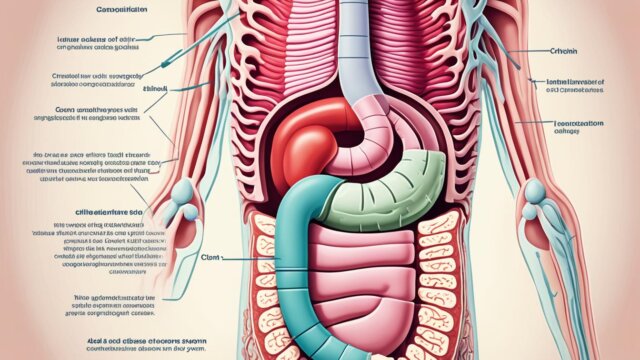FTC disclaimer: This post may contains affiliate links and we will be compensated if you click on a link and make a purchase.
Docosahexaenoic Acid (DHA) is crucial for the proper development of the brain and retina of fetuses and infants.
DHA is a type of Omega 3, an “essential fatty acid.” That means that your body requires DHA but cannot produce it. Instead, you must ingest DHA through your diet or take a supplement.
(You might be surprised to learn that Omega 3 is not the only essential nutrient that has to be taken in through the food you eat because your body cannot produce it. There are about 50!)
The best way to get the DHA you and your baby need and the best way to get other essential nutrients are to eat a balanced diet.
The primary source of dietary DHA is cold-water fatty fish such as salmon, tuna, mackerel, lake trout, herring, halibut, sardines, and Hoki.
There are smaller amounts of DHA in organically raised animal products like free-range eggs and chickens and grass-fed beef.
However, if you can’t or don’t always eat a properly balanced diet, fish oil supplements with high concentrations of DHA are an easy way to be sure you get the requisite amount of this nutrient.
As found in fish oil, let’s discuss how DHA is indispensable for babies.
Fish Oil Is Crucial For Fetal Brain Development
DHA is a major “building block” of brain cells. It helps in enhancing brain cells’ function and communication.
Therefore, fetuses must receive adequate supplies of DHA, particularly during the final trimester when the fetal brain grows threefold.
Where does the fetus get the DHA it needs? From the mother, of course.
According to studies, pregnant women require DHA not only for their use but also for the use of their developing fetus.
In addition to brain development, studies have established that DHA is essential for retina development.
Fish Oil’s Effects On Babies’ Births
Recent studies have shown that an adequate maternal intake of DHA reduces the risk of pre-term birth and low birth weight.
It also is credited with improving an infant’s problem-solving capacity and eye and hand coordination.
The Importance Of Fish Oil After The Baby’s Birth
The child’s brain continues to develop rapidly during the first few months of life, so your baby needs an ample supply of DHA during this stage of development.
After birth, instead of receiving that supply through the umbilical cord, as was the case during gestation, the infant gets the necessary DHA from its mother’s breast milk or a DHA-fortified formula. (If you are feeding your baby formula, make sure it is DHA-enhanced.)
Studies have shown that infants whose mothers had the highest amounts of Omega 3 intake had higher IQs, advanced attention spans, and fewer incidences of asthma, eczema, and food or environmental allergies.
Furthermore, numerous other studies have shown that infants receive adequate Omega-3 they perform better on hand-eye coordination tests.
Also, their eyesight is, on average, 1.5 lines better on an eye chart than their peers who did not have as much Omega 3.
Finally, scientific studies have shown that DHA also helps the maturation of the baby’s immune system.
When To Take A Fish Oil Supplement That Is High In DHA
The current recommended amount of DHA during pregnancy is 200-300 milligrams a day (depending on which expert you consult).
Consistently eat a well-balanced diet, and you — and your baby – will be good to go!
Unfortunately, however, studies show that 98% of pregnant and nursing women don’t get enough DHA through their diets.
Are you one of them?
Despite your best intentions and motivation to do everything you can for your baby, the demands of today’s world make it difficult always to eat a perfectly balanced diet that includes at least two servings of fish each week.
Perhaps you don’t like fish. Maybe you have an allergy to fish. Or you might not have access to a good, clean, reasonably-priced supply of fish.
It could be that you aren’t sure that you can consistently eat a balanced diet, primarily because of the increased demands of your pregnancy.
If any of these situations describe you, you should consider taking a fish oil supplement that is molecularly distilled and high in DHA after checking with your obstetrician.








